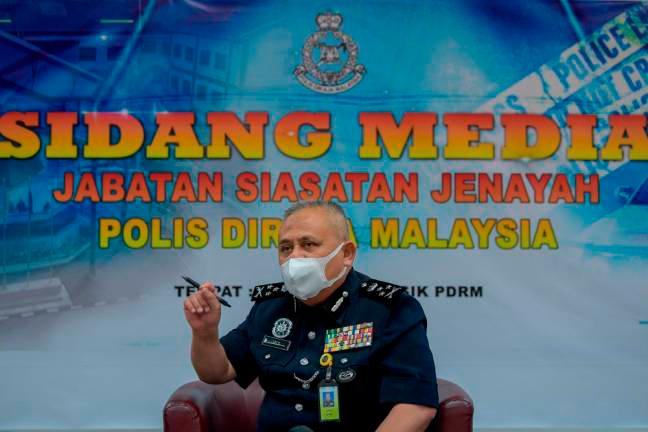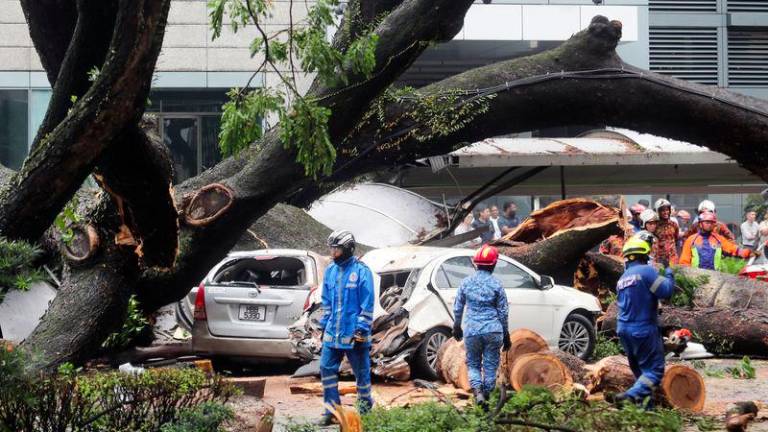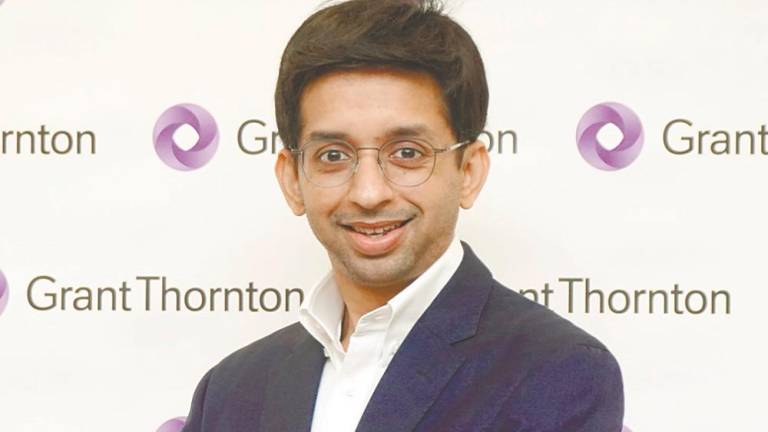PETALING JAYA: A 20-year-old proposal to collect and store the DNA of newborns to help the police fight crime has resurfaced, igniting a new round of debate between proponents and detractors.
Depending on how one looks at it, it can be just a small step from fingerprinting, a practice that has been accepted without question, and a giant leap for police work.
Countries such as China and the United States have fared well with the technique, according to Universiti Sains Malaysia head of research on crime and policing, Assoc Prof Datuk Dr P. Sundramoorthy.
“If passed, this will help significantly in crime-fighting,” he told theSun.
At a June 30 media conference, Bukit Aman Criminal Investigation Department director Datuk Seri Abd Jalil Hassan (pix) said the police had made the proposal in 2001 but it was rejected on several grounds, namely, human rights and fear of it being abused.
He pointed out that it would help resolve criminal cases and communal issues more quickly and therefore justice for the victims will be served sooner if DNA profiles were available in a databank for quick retrieval.
Sundaramoorthy even proposed that the practice be extended to cover children aged 12 and above.
However, he said, there are issues to resolve before DNA collection can be implemented. “Firstly, should the DNA samples be extracted at the hospital where the baby is delivered, and who will bear the cost?”
A way out, he said, is to exempt those in the B40 group from footing the bill, while the M40 pay a subsidised rate and the T20 pay the full cost.
Malaysian Association of Accredited Fraud Examiners president Datuk Seri Akhbar Satar, too, agreed that the government should reconsider the proposal given its effectiveness in crime prevention.
“DNA is a forensic practice that is especially accurate,” he said. “It is a powerful tool that can act as a genetic ‘eyewitness’ in the field of criminal law.”
Among other benefits of using DNA are that it prevents wastage of time and resources by providing “intelligent leads”, eliminate innocent parties as well as identify repeat offenders.
Sundaramoorthy and Akbar also agreed that the issue of human rights should also be taken into account.
“It would be appropriate for the police to discuss the issue of violation of privacy with human rights groups,” Akbar said.
He said the issue of integrity, ethics and trust as well as data management and governance should also be addressed to prevent misuse.
Sundaramoorthy said the move should not be made mandatory at the start to give parents the right to choose. “No system is foolproof, so there will always be the risk of wrongdoing or hacking,” he said.
As expected, the Human Rights Commission of Malaysia (Suhakam) reaffirms its stand that such a move should not be allowed.
“It does not sit quite well (with us) because it goes against our principle of privacy and the need to keep the interests of children safe and secure,” Suhakam commissioner Datuk Mah Weng Kwai told theSun.
“There may come a day when all adults and children aged 12 above are required to provide DNA samples to the police, but I do not see why babies should be forced to give their DNA when they cannot even give consent,” he said.
Mah said collecting DNA samples is a big step beyond fingerprinting and the chance of misuse will be present if the right precautions are not set in place.
“There is always a risk of leakage, and some people’s DNA samples may be used for ulterior motives. Until we get a 100% assurance or at the very least close to 100%, then this register can be abused by third parties,” he said.
If such a proposal is accepted, the government should consider having an independent party manage the database and ensure it is accessible only to authorised people, such as the police, he added.












